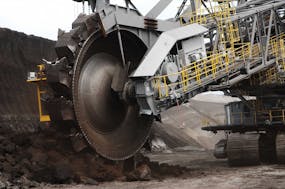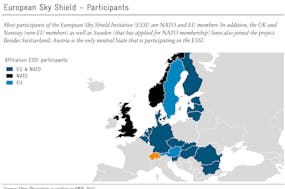Trade protection for agricultural products in Switzerland is about 50 per cent higher than in neighbouring countries. Correcting for that, and for the value of farming’s collective benefits to society, together amounting to SFr1.2bn, leaves Swiss agriculture showing a negative value added of SFr70m, according to Schläpfer’s striking calculations. The agricultural economic account for 2014, by contrast, show a positive net value added of SFr2.2bn. But even allowing for its services provided for the common good, Swiss agriculture consumes more in resources than it adds in value.
In terms of direct payments, the biggest items are not, as foreseen in the constitution, earmarked for services provided for the common good, like the appropriate use and care of all agricultural land. At SFr1.1bn, the single biggest budgetary item comprises payments to secure food supply, although there appear to be no dawning shortages as matters stand.
The volume of milk, not income, counts
That’s problematic in two ways. Switzerland today does not produce too little, but too much and, in certain crops, too intensively. In meat and dairy especially, production methods are anything but sustainable or just for national self sufficiency – especially considering most animal feed is imported. “The excessively expensive industrialised production of milk and meat exceeds Switzerland’s actual agro-ecological potential”, argues Schläpfer. That contrasts with, say, eastern Europe, where relatively low revenues per hectare show there are significant production reserves available.
Schläpfer believes many Swiss farmers could earn more by less intensive methods. “What still counts for many is the volume of milk per cow, not income per hour.” Even regarding environmental protection, Swiss agriculture does not emerge particularly well compared with the rest of Europe. Ammonia emissions are particularly high, for example. The study also shows Swiss farmers use about twice as much fertiliser as their German or Austrian counterparts.
Less protection is also possible
Schläpfer is convinced Swiss farmers could be competitive against the EU even without trade protection – as long as they are willing to think innovatively. That doesn’t mean turning Switzerland’s Mittelland (the high plateau north of the Alps, ed) into a forest, as Markus Ritter, president of the Swiss Farmers’ Union, claimed in a recent interview with the NZZ. Neighbouring Austria’s farmers have shown it is possible to deal successfully with European competition. In Switzerland, by contrast, poor profitability is used to defend the status quo.
The ensuing debate at Avenir Suisse’s event highlighted shortfalls in thinking purely in economic terms – as illustrated by agricultural experts Hans Rentsch and by Jürg Maurer, deputy head of economic policy at the Migros co-operative. Agricultural policy also had to reflect consumer preferences, even if these were not always rational.
That led to the final question: why were Swiss consumers happy to buy overpriced domestically grown vegetables, when these were no better than foreign products either ecologically or in terms of quality? Are buyers just wrongly or inadequately informed? Does the big supermarket chains’ advertising just reinforce a distorted view of idyllic farms and happy cows? Can liberalisation come only through outside pressure?
The experts were agreed that reforms of recent years – such as the abolition of price guarantees or animal subsidies – had gone in the right direction. But it remained clear: the job was far from done.





